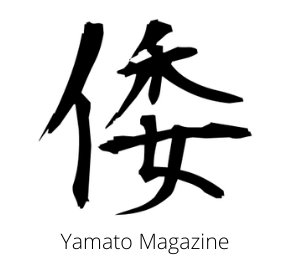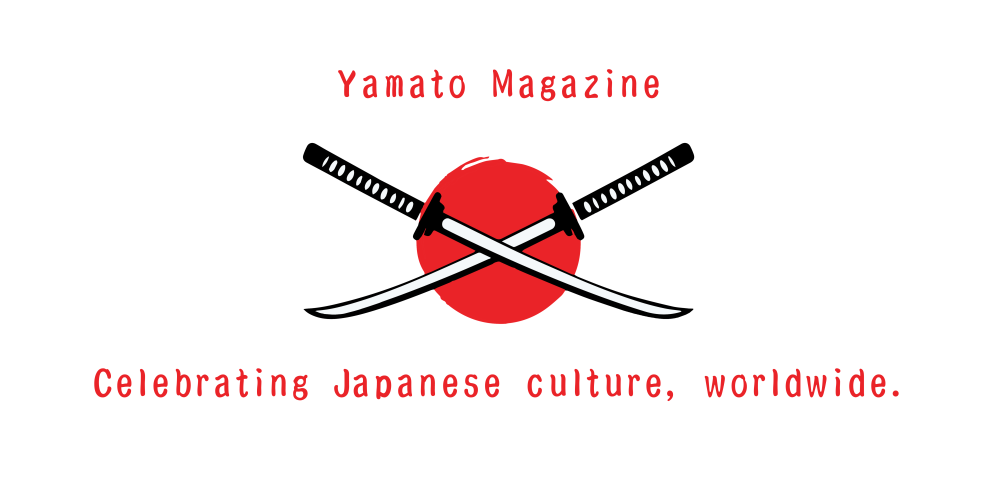
How one man turned his trials into triumphs: The Story of Carl Rosa
By Kristine Ohkubo
“What if we viewed life’s challenges as tools that can actually help us prosper?” That is the question asked by Carl Rosa, the founder of the Sushi Club of Houston and several other highly successful businesses which promote Japanese cuisine and culture in the United States. It is a question which gives us pause to think, and also effectively encapsulates Carl’s own personal experiences beginning with the tragedy which struck his family in 2005.
Inspired by his incredible knowledge and love of Japan, I recently interviewed Carl to learn more about what fuels his passion and dedication to promote Japanese culture through carefully cultivated culinary experiences.
K: You mentioned that your occupation was that of a public speaker in Japan. You also seem to have a deep understanding of Japan and Japanese culture. Did one lead to the other?
For instance, did your public speaking engagements contribute to your growing interest in Japan, or have you always been interested in Japan and the public speaking position simply presented an opportunity for you to further pursue your love of the country?
C: I fell in love with Japan when I was in college. Believe it or not, I saw a single statue in a book and it captivated me. I said to myself, “This is the most striking statue I have ever seen. Wherever it’s located, I will see it with my own eyes one day.” At the bottom of the photo, the caption read, “This is a statue of the famous samurai Kusunoki Masashige; located in the centre of Tokyo, Japan.”
Then, about four years later, I visited Japan for the first time. Without question, the culture spoke to me. The way they lived made total sense and it felt like my thinking process matched theirs. That started it all.

K: You stated earlier that you essentially lost everything in 2005 during Hurricane Katrina. What was it like to start all over again in Houston, and why did you pick Houston?
C: Losing absolutely everything I owned was a huge concern for about one week. It was all my wife and I thought of. Your brain continually searches to remind you of every single thing you lost and will never get back. But when we started purchasing everything new, to make up for what we lost, our viewpoint changed. We started to see it as, “Everything will be nice and new. We are hitting the restart button.“
We chose Houston because both of our employers had plans to set up satellite offices there in order to continue operating. At the time, I was vice president of real estate for a company named Orthosynthetics and my wife worked as a purchasing agent for Alcoa Aluminum.
K: I read that you sampled some awful sushi in Houston and that was the impetus for founding the Sushi Club of Houston. Currently, your organisation promotes all aspects of sushi including, sushi classes, demonstrations, presentations, dining events, and travel to Japan. Those are some pretty complex undertakings, particularly when it comes to coordinating travel. Can you tell us how it all evolved?
C: After my wife and I arrived in Houston, we started sampling a wide variety of cuisine all over the city. My first experience with sushi was an awful one. Now, keep in mind, I didn’t even know how to evaluate quality sushi at the time. So, I’m quite certain that my first evaluation of Houston area sushi was inaccurate. But nonetheless, I had a profoundly negative experience.
About two weeks later, I dined at a different sushi spot and I enjoyed it very much. I complimented the owner by telling him, “My first experience with sushi in Houston was very bad. Your sushi is incredibly good. Your restaurant will be my new sushi spot.“
He shook my hand, thanked me for the compliment and asked me, “ What makes my sushi so good?“
I replied, “Your fish is so fresh.“
He responded, “Thank you for the compliment, but you have no earthly idea what you’re talking about.“
I was blown away by his comment. For the next two days, I searched the Internet for a guide on evaluating quality sushi. I could not believe that I didn’t even understand how to gauge quality sushi. Furthermore, I couldn’t find anything on the Internet that was helpful.
I returned to the same restaurant two days later and asked the owner if he knew of an organisation that was dedicated to teaching the finer aspects of sushi. He answered, “ I’ve lived in Houston for 20 years. We don’t have any type of a sushi-based organisation here.“
I instantly started working on a group that was dedicated to eating sushi and learning about sushi.
K: In addition to teaching sushi making and appreciation, you have organised over 60 trips to Japan. Are these trips limited to your sushi class members, or are they open to anyone wishing to travel to Japan? You mentioned that you do not visit the same city twice – how do you coordinate these trips?
C: From my last count, I have now offered more than 80 trips to Japan. I need to change that on my websites. Anyone in the United States can register for my trips, membership in my classes is not a requirement. The entire point of my trips to Japan is to provide a safe, comfortable venue for Americans to visit with minimal confusion. Let me put it this way, if an American guides other Americans through Japan, it will be a much easier and more comfortable experience.
I meet with everyone (either in person or online) and find out what interests them about Japan. Some people want to sample the food, while others are interested in the history, religion, or architecture. Depending on their interests, I will structure the itineraries to ensure that I hit the target. For example, if someone is truly interested in seeing geisha, I will take the group to Kyoto. If someone else is interested in photographing historic sites, I will take them to Nikko. So, every group and itinerary is different.
K: The Sushi Club is a private organisation; it is not a corporation. How do you fund your projects?
C: At first, I personally funded the group. I used my own money to rent rooms, and purchase sushi, sake, etc. But soon after that, the members simply agreed to contribute in order to expand the events and agendas of the group.
For example, I would find an extremely rare sake in Japan. Let’s pretend the sake cost $700. A single bottle of sake worth $700 is a rarity. I would purchase the bottle and bring it back to America. I would offer the bottle to my group, saying,“ I purchased this sake. If you would like to sample one of the finest bottles sake in the world, everyone needs to pitch in $10 for a single serving.
Within an hour, 70 people would register for the event, and I was fully reimbursed for the bottle. Not only that, but I soon gained a reputation for finding some of the most expensive and impressive items from Japan and bringing them back for my members to sample. It didn’t take long for the group to grow exponentially.
K: The sushi classes you offer have expanded to include five U.S. cities, Houston, Austin, Denver, Colorado Springs, and Atlanta. How do people find out about your classes and everything you offer? Is it by word of mouth?
C: All of my sushi classes are advertised by word of mouth. I never advertise. The entire theory behind my effort is to provide a fun and educational experience whereby the sushi student is amazed by how much he or she learns through creating phenomenal sushi for the first time.
Using social media, my sushi students will brag about their amazing work and share their creations and experiences online. These days, I receive about three or four requests for classes per day. My students are my promoters.
K: In 2012, you branched out to include ramen dining events. In fact, I believe it is a separate group which includes over 3,500 members. What is your vision for the future? It seems that you are driven to introduce Japanese culture not only from a gastronomical aspect, but you are including site seeing, etc. What is your ultimate dream?
C: That’s a good question. At this time, my vision is to keep doing what I’m doing as interest grows quickly. Once the Covid restrictions are reduced and I am allowed to return to Japan, I will be offering more specific tours to Japan, pottery, museums, sake tastings, etc.
In terms of my classes, it will be a more intensive class, offering sushi students the opportunity to dive into concepts they have never considered.

If you are interested in learning more about Carls’ various businesses and projects, please visit: www.carl-rosa.com

